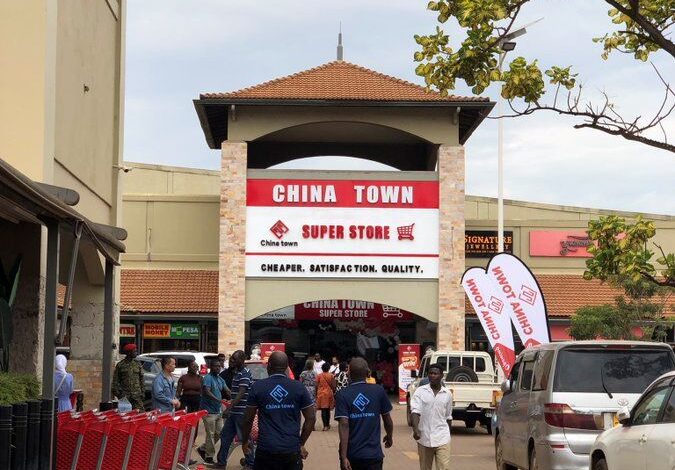China Town: The marketplace making Kampala speak in tongues
For many, China Town is a haven of affordability. It offers a diverse selection of goods that often appear identical, to those found in more established shopping areas yet at a fraction of the cost.

Lugogo located in Kampala is no stranger to bustling shopping centers and thriving marketplaces. However, the emergence of China Town in this area, has become a phenomenon that has both amazed and puzzled many Ugandans.
Shoppers are flocking to this marketplace, drawn by prices that seem too good to be true.
The slightly cheap prices on a wide range of products, from electronics to clothing and household goods, are raising eyebrows and sparking conversations across the city.
For many, China Town is a haven of affordability. It offers a diverse selection of goods that often appear identical, to those found in more established shopping areas yet at a fraction of the cost.
This has led to an influx of customers from all walks of life, eager to take advantage of the seemingly endless bargains.
“I come here because I can get almost everything I need at half the price I would pay elsewhere,” says Joan, a regular shopper in Kampala.
“It’s like they have a secret to low prices that no one else knows.”
David, another shopper, shares a similar sentiment. “I was skeptical at first, but after comparing prices with other places, I couldn’t believe how much I saved,” he says while browsing through a selection of home appliances.
“I’ve bought electronics, clothes, and even furniture here. The prices are unbeatable, and the quality, for the most part, is good enough.”
Rita, a mother of three, also finds China Town a blessing. “With kids, you’re always looking for ways to stretch your shilling,” she said.
“Here, I can buy everything they need without breaking the bank. It’s become my go-to shopping spot.”
To unravel the mystery behind China Town’s pricing strategy, we reached out to a business expert who offered insights into the dynamics of such marketplaces.
Dr. James Katongole, a business analyst specializing in retail economics, suggests that the secret at times lies in the supply chain.
“These businesses often source their products directly from manufacturers, cutting out multiple middlemen who would typically drive up costs,” he explains.
“This direct-to-market approach allows them to pass on the savings to customers.”
However, Dr. Katongole also cautions shoppers to be mindful of the quality.
“While the prices are attractive, it’s important for consumers to carefully assess the durability and authenticity of the products. Not everything cheap is a bargain in the long run.”
He further notes that China Town has strategically positioned itself as the go-to place for budget-conscious consumers.
“Their pricing model disrupts the traditional market by undercutting competitors. This can be a double-edged sword—while it benefits consumers in the short term, it can also put pressure on local businesses to lower their prices, potentially leading to a race to the bottom in terms of quality.”
Katongole also raises an interesting point about consumer psychology. “People love a good deal, and China Town has mastered the art of making customers feel like they’re getting incredible value for their money. This perception, combined with the actual low prices, is what drives the massive foot traffic to the area.”
While the debate over China Town’s pricing practices continues, it’s clear that this marketplace has made a significant impact on Kampala’s retail landscape.
Whether it’s a smart business strategy or a cause for concern, one thing is certain: China Town has changed the way people shop and think about value.
As shoppers continue to speak in tongues over the bargains they find, business experts urge a balanced approach—enjoy the savings, but keep an eye on quality.
After all, in the complex world of retail, the cheapest option isn’t always the best.







